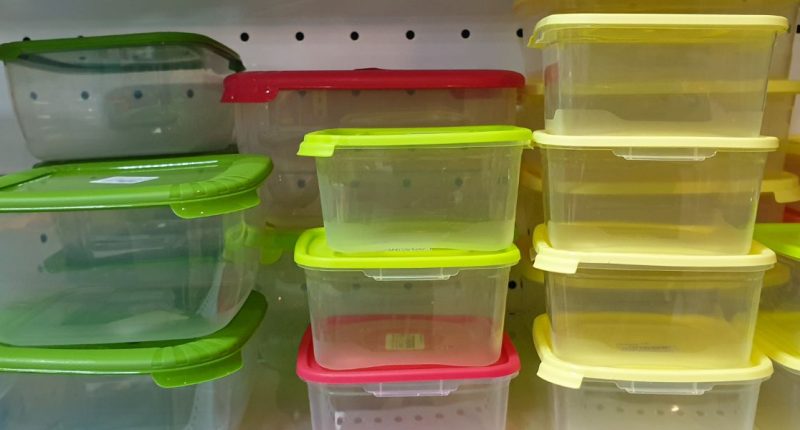Foods sold in plastic containers are at risk of containing up to 10,000 hormone-warping chemicals, putting those eating certain products at risk of being contaminated, a new study has claimed.
A new trial from the Norwegian University of Science and Technology has found that shop bought sushi and takeaway curries are likely to contain potentially harmful substances due to the packaging they are served in.
After testing plastic packaging from around the world, the academics discovered that most food containers contained bisphenol A (BPA) and phthalates – chemicals that can negatively impact an individual’s hormones.
- PFAS: hormone-altering chemicals could be linked to certain cancers in women
- Autism and ADHD can be caused by early gut microbiota disturbances
- Microplastics and cardiovascular disease link identified
Prior studies have found that people who are exposed to these substances are more at risk of developing type 2 diabetes, certain cancers and obesity.
Additionally, they are more likely to experience fertility complications compared to those not exposed to the chemicals, previous research has claimed.
First author Martin Wagner said: “We found as many as 9,936 different chemicals in a single plastic product used as food packaging. We need to redesign plastic to make it safer.”
During the study, the team of researchers examined the packaging of 36 different food products from the UK, US, Norway, Germany and South Korea.
They broke the containers down and then dissolved the plastic in methanol, allowing them to extract the chemicals in liquid form.
The scientists then added the chemical mixtures to human cells so they could look at how they affect human receptors involved in regulating our hormones and metabolism, such as oestrogen and testosterone.
- Paper straws as harmful as plastic versions, study shows
- Microplastics have now been found in human blood as experts warn they could travel through the body and become stuck in organs
- Chemical found in plastics linked to risk of diabetes in women
They discovered that all but three of the plastic products interfered with the activity of the pregnane X receptor – a receptor which helps manage blood sugar and fat metabolism.
Meanwhile, 23 of the products contained chemicals activating the peroxisome proliferator receptor – the predominant regulator of fat cell development.
According to the results, chemicals that blocked testosterone receptors were found in 14 products, and chemicals mimicking oestrogen were seen in 18 of the products.
Experts are urging people to remove food from plastic packaging immediately and instead store it in glass or stainless steel containers.
The authors concluded: “Consumers should also prioritise fresh goods that come without packaging to lower exposure to chemicals.”




